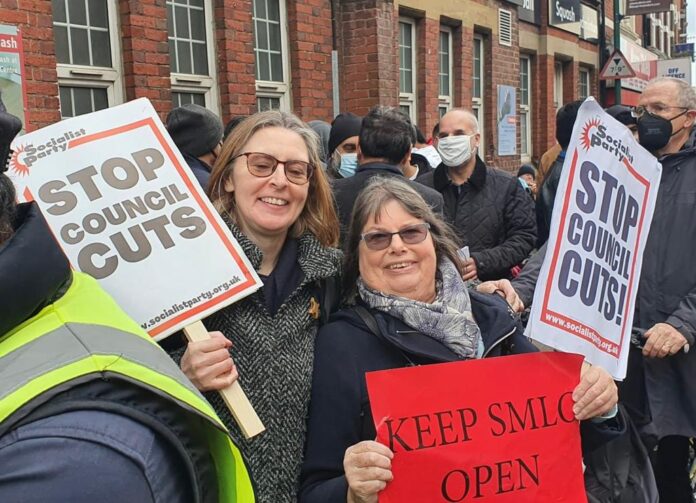Socialist Party member and teacher living in Aldershot
Tory-run Hampshire County Council is the latest local authority to declare a financial crisis, with council leaders warning that they intend to cut services to the ‘bare minimum’ to avoid issuing a Section 114 notice, declaring effective bankruptcy. Despite council leader Rob Humby insisting the local authority is in a “good” financial position, he is considering cutting or ending so-called ‘discretionary’ services such as community transport, libraries, household waste recycling centres, school crossing patrols, museums, and charity grants. Even with these cuts, the council expects to exhaust its reserves by 2026 unless additional funding is made available from the government.
Hampshire is a Tory stronghold and one of the largest Conservative-held councils in the country. This isn’t the first time the council has raised the issue of funding, writing a joint letter with Kent County Council warning of impending financial crisis earlier in the year. They implored their Tory party colleagues in Westminster to step in with additional funds. Yet the austerity politics of the national Tory party extend even to their own electoral heartlands. There are similar stories in county and borough councils across the South East (see ‘Woking council announce cuts – unions must fight back’).
‘Bare minimum’ services
Residents in Hampshire will probably be surprised that they aren’t currently experiencing the ‘bare minimum’, with services having suffered immensely since 2010. An absolute majority has given the Tories free rein to practice austerity, still not enough to prevent potential bankruptcy. Tory councillors in power have meant rapidly shrinking services and rising council tax bills.
Hampshire illustrates the impossibility of local councils playing by the austerity handbook, no matter how much is cut, the Tories in Westminster are determined to starve local authorities so their big business mates can pick the profitable parts from the bones of what were once public local services controlled by elected councillors. ‘Playing by the rules’ inevitably leads to bankruptcy. Local communities should look to the example of the Militant-led Labour council of Liverpool in the 1980s that successfully secured additional funds from Thatcher’s government by mobilising working-class communities and trade unions to fight back (see ‘Council ‘bankruptcy’ crisis: Take the Liverpool road, make no cuts’).
On the back of such a mass movement, councils should use the powers they have to borrow, invest in their communities and demand that an incoming Labour government makes available the funds needed not only to arrest the decline, but to reverse the austerity of the last decade.







